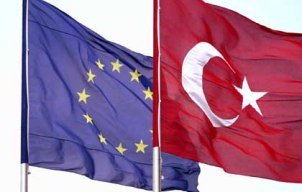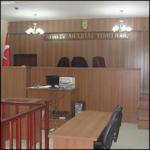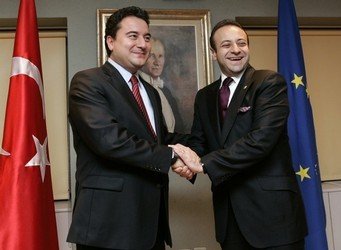The section for the political criteria in the European Union’s (EU) new progress report about Turkey includes negative statements that had been seen for some time. According to the report, the steps taken in various critical areas are inadequate; there has been no progress in some areas. In summary, the report makes the following conclusions:
No political and constitutional reform: Mentioning the closure cases against the Justice and Development Party (AKP) and the Democratic Society Party (DTP), and the Ergenekon, the report states that the government has not presented a coherent and detailed program about the political and constitutional reforms, although it is pleased with Abdullah Gül’s positive performance as president.
Nothing was done when the military interfered in the politics: The soldiers have been interfering, officially and unofficially, in the political issues of Cyprus, Southeastern Turkey secularism and the political problems. There is still no change in the rules and laws concerning the military and the gendarmerie. There have been no steps taken towards strengthening the civil control on the military budgets.
Concern about the independence of the judiciary: The judiciary reform strategy is positive, but the Ministry of Justice needs to consult the civil society more. The concern about the independence of judiciary continues.
Corruption is widespread: There is not much improvement in the fight against corruption. It continues to be a widespread problem. There is no general strategy against it.
The efforts for the human rights are inadequate: The structure for the human rights is not independent. It is a problem that there is no ombudsman. The human rights are under threats.
The efforts for the prevention of torture are inadequate: There is an increase in torture complaints. The existing measures are inadequate. It is imperative that the Optional Protocol to the Convention against Torture and other Cruel, Inhuman or Degrading Treatment or Punishment (OPTAC) is approved. The investigations regarding torture complaints fall behind. There are very few investigations about the prisons. The security forces interfere in the judicial process.
Prisons: The prisons are overcrowded. The F type circular is not being implemented.
Arbitrary restrictions on the freedom of assembly: The laws regarding the freedom of assembly are in conformity, to large extent, with the European standards. But there are arbitrary restrictions. Investigating allegations regarding unproportional force and bad treatment by the security forces still require the permission of the governors.
Make party closing harder: There have been legal improvements in the freedom of association, but the organizations also face unproportional administrative difficulties and legal implementations. The restrictions on political parties should be made compatible with the practices of the European Court of Human Rights and the Venice Criteria.
Freedom of religion: There are difficulties in the implementation of the Law regarding the foundations and the properties of the non-muslims. The Alevite community is still struggling with problems concerning mandatory religious courses and worship. Turkey needs to work more for the freedom of religion.
Women’s rights: The laws regarding equality are mostly in effect. But more efforts are needed in the areas of employment, health, education and politics. Honor and custom killings are still a serious problem.
Children: There are improvements in education, social services and judiciary concerning children, but still more work is needed in each of these areas and child labor.
Union rights: There are reports about restrictions regarding organizing, strike and collective bargaining. Respecting these rights is the number one priority of the European Union. The mechanisms for social dialog are weak.
Discrimination: The legislation about discrimination does not include the sexual discrimination. The lesbians, gays, bisexuals, transsexuals and transvestites still face the charges of the “indecent exposure” and the “acts against public morality.” Lambdaistanbul, the organization that embraces individuals with sexual preferences other than heterosexuality, was closed by the Istanbul Governor. The discrimination against the gays in the military service is still strong. Transsexuals suffer attacks. The homophobic violence easily turns into sexual violence. Investigations are needed in these areas.
Minorities: Turkey has not made any progress in securing cultural diversity and strengthening the respect and the protection for the minorities.
Cultural rights: The children of non-Turkish languages are unable to learn their mother tongues in the public schools. With the closing of the Kurdish language courses, it has become impossible to learn Kurdish. There have been no steps in easing the access to the public services for the non-Turkish speakers. Languages other than Turkish are banned in the political life. The Romani people have been kicked out of their neighborhood in Istanbul and condemned to bad and unhealthy life conditions. The discrimination against the Romani people is continuing in the areas of education, social protections, health and employment.
Eastern and Southeastern Turkey: The government announced its GAP development plan for the southeastern Turkey. The attacks by the Kurdish Workers Party (PKK) led to the death of many people. The landmines are still a serious problem. More steps need to be taken for the rights and freedoms of the Kurdish people. The organization of village guards should be abolished.
Cyprus: Turkey has not taken any steps to normalize the bilateral relations. The efforts to improve the bilateral relations with Greece continued. The bilateral relations with the other countries have been positive. (TK/TB)
















